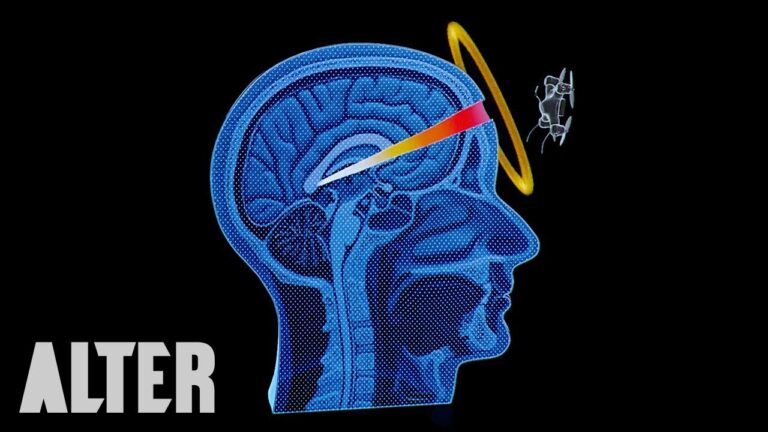[Catherine’s Note: I originally published this piece in 2007. Because of the California and other state and local fiscal challenges, I thought I would republish]
In the early 19th century, the little British Channel island of Guernsey faced a problem. Its sea walls were crumbling. its roads were too narrow, and it was already heavily in debt. There was little employment and people were leaving for elsewhere.
Instead of going still further into debt, the island government simply issued 4,000 pounds in state notes to start repairs on the sea walls as well as for other needed public works. More issues followed and twenty years later the island had, in effect, printed nearly 50,000 pounds. Guernsey had more than doubled its money supply without inflation.
A report of the island’s States Office in June 1946 noted that island leaders frequently commented that these public works could not have been carried out without the issues, that they had been accomplished without interest costs, and that as a result “the influx of visitors was increased, commerce was stimulated, and the prosperity of the Island vastly improved.” By 1943, nearly a half million pounds worth of notes belonged to the public and was so valued that much of it was being hoarded in people’s homes, awaiting the island’s liberation from the
Germans.
About the same time that Guernsey started to fix its sea walls the town of Glasgow, Scotland, borrowed 60,000 pounds to build a fruit market. The Guernsey sea walls were repaid in ten years, the fruit market loan took 139. In the first part of the 20th century, Glasgow paid over a quarter million pounds in interest alone on this ancient project.
How did Guernsey avoid the fiscal disaster that conventional economics prescribed for it? First and foremost by understanding that when you build roads or sea walls or colleges or houses, you are not reducing your society’s wealth. In fact, if you do it right, you are creating something that will add to its wealth. The money that was created was simply backed by public works rather than gold or “full faith and credit.” It was, in fact, based on something more solid than the dollar bills in our wallets today. In contrast, tacking on an interest charge to public works — as we do in the US — creates no new wealth, but merely transfers claims on existing wealth from debtors to creditors.























































































































In this forum post,
http://forum.freestateproject.org/index.php?topic=18202.msg216305#msg216305
I shared the above article and then I said:
I understand most of what was said above, except for that last sentence, “tacking on an interest charge to public works — as we do in the US — creates no new wealth, but merely transfers claims on existing wealth from debtors to creditors”. What does “tacking on an interest charge to public works” mean? Does it mean paying interest to bond holders? And who are the debtors and creditors of this existing wealth? Does existing wealth mean the wealth existing before public works projects are completed or after completed? When a government sells bonds, I think the bonds are IOUs for the money that bond holders paid and the government, i.e. the taxpayers[?], are the debtors and the bond-holders are the creditors. Is that right? If so, I’m not clear on how the public works would not create wealth, nor on how the wealth is transferred to the creditors, since public works projects aren’t owned by bond-holders who turn their bonds in for money. Can you explain?
You are asking the wrong question. The real question is, how can money be made to serve the population and bring prosperity, instead of bringing depression and debt slavery to the many and wealth concentration into the hands of the few. Money is not wealth. It is just a tool, -one we need to function. But because our current money is badly designed (to be created as debt owed to an enormous non-productive sector) instead of bringing prosperity, it brings cancerous growth and environmental disaster.
This cannot be explained in a single note. Please start your education by having a look at “Money as Debt” by Paul Grignon. I believe it’s still free to download and Paul is just now issuing a sequel of which I have ordered two copies, knowing what a brilliant job he did on the original.
Forget about money for a minute: Guernsey Island and Today’s California NEED certain things which are actually available. What is preventing? Even in the great depression EVERYTHING WAS THERE: resources, energy, skills, desire to provide goods and services, markets for goods and services, . . WHAT IS PREVENTING! lack of money?? How absurd.
That is as absurd as saying carpenters can’t build houses for people who want to buy them because we have run out of INCHES.
Inches and Money are only measuring devices, in essence. (especially now that the only thing backing money is faith!) But our money has been hijacked. An enormous parasitic infrastructure has overburdened the productive capacity of the US with too much skimming by non-contributors. Just because certain elites are allowed to skim the cream from the crops of human endeavor doesn’t me they earned it (Regardless of what old SmithBarney always said.) They are using control of the money system to suck from human endeavor for all they can and the only limit to this (tapeworm?) is collapse and death of the host.
Can the human parasite sucking the life from planet earth self-correct? Following this metaphor, it feels like a massive die-off will be the harbinger of change. Why couldn’t it be an awakening?